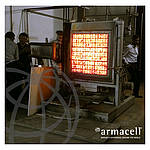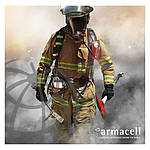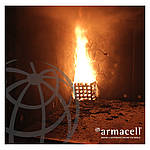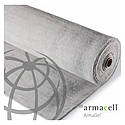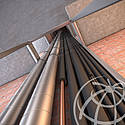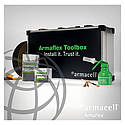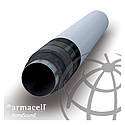System solutions for insulating industrial systems
Performance, savings and safety in the harshest of environments
The demands of industrial equipment insulation is diverse as it spans different industries such as manufacturing, pharmaceuticals and power generation as well as packaging and logistics industries and electrical enclosure systems. However, stability and reliability are key, independent of the industry, as unscheduled down-time cannot be tolerated. While the core purpose of insulation remains the same - energy efficiency and personnel protection, the differences in operating conditions mean that the demands and consideration of insulation systems differ.
In the oil and gas industry, for example, time is a critical factor. The contractually defined milestones for the complete construction of the facilities can only be achieved if time and cost estimates for individual work packages are satisfied at various stages of the project. Therefore, the speed at which they can be installed may well decide which insulation materials are specified.
Additionally, compressors, pumps, control and relief valves can generate significant levels of noise, which are transmitted through the pipework. In pipes in which gases, vapours or liquids flow under high pressure, the noise is often increased when turbulence occurs in the vicinity of obstacles such as valves or orifice plates, or as a result of changes in flow direction. Apart from measures to reduce the noise at source and re-radiation effects, one of the key actions required is to minimise noise through sound absorption. This includes the insulation and cladding of pipes and vessels.
Take note of these considerations when insulating hot and cold applications.
Peformance advantage for the industrial sector
Discover more about Armacell's solutions for the industrial sector in the product section. Apart from their excellent technical properties, ArmaFlex has clear flexibility advantages over conventional insulation materials such as mineral fibres, cellular glass, PUR/PIR or thermosets. The highly flexible insulation material means that installers can fit the material well even on complex components, install it under the most difficult conditions on-site and achieve professional workmanship without any special tools.
Armacell's acoustic insulation porfolio includes open-cell foam insulation ArmaPhonic as well a variety of professional barriers which can be designed and installed modularly to achieve both thermal insulation and noise control, but at much thinner and lighter constructions and classic insulation systems.
Safety standards
We spend a significant amount on testing every year to supply customers with high-quality products ideal for their destination markets. Discover how using Armacell's compliant products provides you with a greater ease of mind. Click here or one of the images below.
Part 6 specifies a method of test for providing a comparative measure of a flat material or assembly's contribution to the growth of a fire taking into account the combined effect of several factors. Read more.
The FM approval or the FM 4924 standard is an approval requirement for insulation material used on the exterior of non-combustible pipes or ducts. This standard uses a full-scale pipe chase test for tube insulation and a full-scale room test for duct insulation (sheets). Read more.
